Dr. Rabbi Shmuly Yanklowitz is a speaker at our upcoming Jewish Futures Conference on Thursday, May 30. His expertise on immigrant justice will guide us through the power dynamics of the humanitarian crisis at the US/Mexico Border and immigration to the US. Read on for a preview of his ideas on organizing around immigrant justice and how Jewish education informs our justice work. This interview has been condensed for length and clarity.
Q. How has your Jewish education informed your views on immigrant justice?
A. Judaism, as an organized system of ethics, emphasizes that humanity’s greatest deed is to take care of the other. No less than thirty-six times in the Torah is this precept mentioned in regards to the stranger. As someone who cares deeply about striving to embody the deepest values found in the Jewish tradition, justice for immigrants is simply ingrained in my worldview.
During my time in yeshiva and in the years since, I’ve pondered about the maximalist approach to actualizing Jewish ethics: It’s not solely about learning what our sages said and learning their words by rote, but about taking the ideas that originate in the Torah and making them relevant. Immigrants and asylum seekers are treated horribly at all levels around the world. I feel that Judaism provides an antidote to anti-immigrant sentiments because our history has so many episodes of Jews being persecuted for being the “stranger” and the “other” ourselves. We have a historical mandate to be advocates for the vulnerable in the face of baseless hatred.
Q. How have you seen Jewish communities and organizations handle the humanitarian crisis? Is there anything you feel that can be done differently?
A. Jewish communal organizations that focus on this area of policy have done their best but are tied up with limited resources. There is so much work to be done and so much to noise to sift through. It is a challenge to inform people what is actually happening on the ground at this very moment. On the other hand, it’s been inspiring to see how quickly Jewish organizations can mobilize when given the proper information and tools, doubly so when Jewish organizations partner with social justice groups or NGOs to build bridges towards meaningful collaboration.
We can open our homes for temporary stay, provide pro bono medical and legal services, donate funds and supplies, and form welcome teams when ICE drops off asylum seekers prepared and trained to support. Beyond the humanitarian support, it’s also crucial that we advocate for systemic change.
Q. How can Jewish education guide us to advocate better for immigrant justice?
A. Going back to what I said before, the ideas found in ancient Jewish texts lay the foundation for how we think about the contemporary crisis at hand. The Torah was never supposed to be a history book, nor was the Talmud meant only to be the recorded arguments of the Sages.
Instead, these texts are living and breathing ethical guides that inspire us, challenge us, and compel us to think outside of the self and think about giving back to the world. Jewish education, when done in a way that is meant to reinforce moral truths, gives us the tools to be advocates and forward-looking thinkers. It is a process of argumentation, of cultivating empathy, of behavioral medication, and of spiritual awakening.
Q. Can you share some of the framework for your session at Jewish Futures? Such as what texts we’ll be observing or how we’ll be discussing power dynamics in Immigration?
A. What I can say is that the session will incorporate texts from different periods of Jewish history—biblical, Rabbinic, Chasidic, modern, and so on—in a way that presents a consistent moral narrative of Judaism’s interest in protecting the stranger in our midst. The goal is to bridge the mind and the heart, to bridge thought and action, to bridge the texts with the contemporary situation.
Hear more from Guila at the Jewish Futures Conference on Thursday, May 30. Register here.

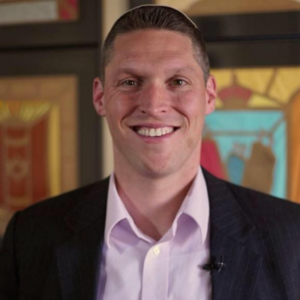

 Black, Jewish and Queer. These three identities weave the fabric of who I am, but it took a long time to believe that they could exist together.
Black, Jewish and Queer. These three identities weave the fabric of who I am, but it took a long time to believe that they could exist together.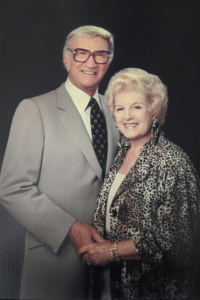 Lee and Toni Leichtag established the Leichtag Foundation in 1991 following the sale of their business. Lee and Toni were lifelong entrepreneurs with a passion for innovation and for supporting talent. They believed that only with big risk comes big reward. Both born to families in poverty, Toni to a single mother, they strongly believed in helping those most in need and most vulnerable in our community. While they supported many causes, their strongest support was for young children and the elderly, two demographics who particularly lack voice in our society.
Lee and Toni Leichtag established the Leichtag Foundation in 1991 following the sale of their business. Lee and Toni were lifelong entrepreneurs with a passion for innovation and for supporting talent. They believed that only with big risk comes big reward. Both born to families in poverty, Toni to a single mother, they strongly believed in helping those most in need and most vulnerable in our community. While they supported many causes, their strongest support was for young children and the elderly, two demographics who particularly lack voice in our society. Lifelong Baltimoreans, Rabbi George and Alison Wielechowski and their sons, 11-year-old Lennon and 9-year-old Gideon, are more than pursuing the good life in Southern California. Having moved to San Diego more than three years ago, they are fulfilling a lifelong dream.
Lifelong Baltimoreans, Rabbi George and Alison Wielechowski and their sons, 11-year-old Lennon and 9-year-old Gideon, are more than pursuing the good life in Southern California. Having moved to San Diego more than three years ago, they are fulfilling a lifelong dream.
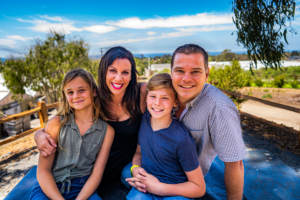
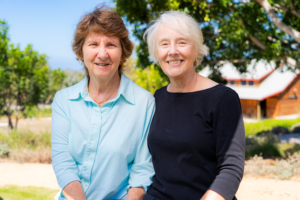

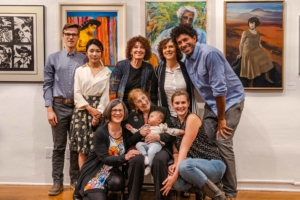
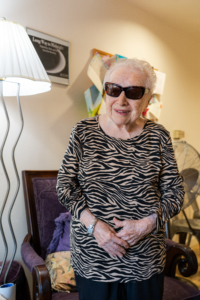
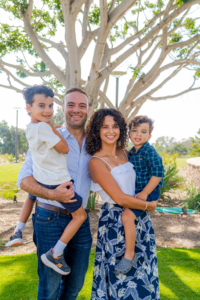
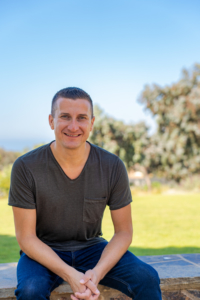 You would think that as the executive director of San Diego LGBT Pride, Fernando Zweifach López Jr., who uses the pronoun they, has done all the coming out they possibly can. A queer, non-binary individual who has worked for many years on civil rights issues, López also speaks openly and often about their father’s family, Mexican-American migrant workers who tilled the fields of rural California.
You would think that as the executive director of San Diego LGBT Pride, Fernando Zweifach López Jr., who uses the pronoun they, has done all the coming out they possibly can. A queer, non-binary individual who has worked for many years on civil rights issues, López also speaks openly and often about their father’s family, Mexican-American migrant workers who tilled the fields of rural California. Stacie and Jeff Cook understand commitment. They live it.
Stacie and Jeff Cook understand commitment. They live it.
